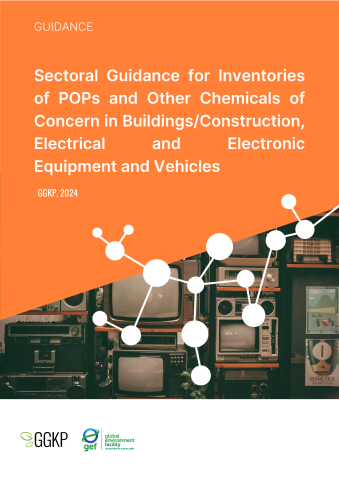
Industrial Persistent Organic Pollutants (POPs) are present in polymers and wood in buildings and construction, in plastics in electrical and electronic equipment (EEE), vehicles, textiles and a range of other consumer goods. These uses result in human exposure indoor, in environmental releases and food chain contamination, and generation of POP contaminated waste and recycling cycles in particular for plastics.
The main objective of developing a POPs inventory is to gather information necessary for the effective regulation and management of POPs and their wastes. This information plays a vital role in updating National Implementation Plans (NIPs) and related action plans for POPs management and destruction to ensure compliance with the requirements outlined in the Stockholm Convention. By adopting a sectoral approach, the goal is to optimize efficiency by assigning a single inventory team to engage with individual stakeholders across various sectors or ministries for collecting POP data. The approach ultimately leads to time and cost savings during the inventory development process.
As part of the GEF-funded and UNEP-led “Global Development, Review and Update of NIPs under the Stockholm Convention on POPs” project, the Green Growth Knowledge Partnership (GGKP) is executing Component 4, focused on disseminating information, managing knowledge and coordinating with the Stockholm Convention Secretariat to provide accessible, integrated tools and resources for all Parties.
